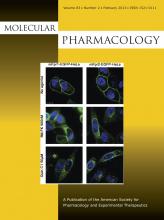Abstract
Targeting specific molecules is a promising cancer treatment because certain types of cancer cells are dependent on specific oncogenes. This strategy led to the development of therapeutics that use monoclonal antibodies or small-molecule inhibitors. However, the continued development of novel molecular targeting inhibitors is required to target the various oncogenes associated with the diverse types and stages of cancer. Obtusilactone B is a butanolide derivative purified from Machilus thunbergii. In this study, we show that obtusilactone B functions as a small-molecule inhibitor that causes abnormal nuclear envelope dynamics and inhibits growth by suppressing vaccinia-related kinase 1 (VRK1)–mediated phosphorylation of barrier-to-autointegration factor (BAF). BAF is important in maintaining lamin integrity, which is closely associated with diseases that include cancer. Specific binding of obtusilactone B to BAF suppressed VRK1-mediated BAF phosphorylation and the subsequent dissociation of the nuclear envelope from DNA that allows cells to progress through the cell cycle. Obtusilactone B potently induced tumor cell death in vitro, indicating that specific targeting of BAF to block cell cycle progression can be an effective anticancer strategy. Our results demonstrate that targeting a major constituent of the nuclear envelope may be a novel and promising alternative approach to cancer treatment.
Footnotes
This work was supported by grants from the National Research Foundation of Korea [Grants 20110027957, 20110031234, 20120005830, and 20110031517]; the Brain Korea 21 program; the World Class University program [R31-10105] funded by the Korean Ministry of Education, Science, and Technology; and a Singapore Ministry of Education Academic Research Fund Tier 2 grant (Academic Research Council 25/12).
 This article has supplemental material available at molpharm.aspetjournals.org.
This article has supplemental material available at molpharm.aspetjournals.org.
- Received September 21, 2012.
- Accepted November 13, 2012.
- Copyright © 2013 by The American Society for Pharmacology and Experimental Therapeutics
MolPharm articles become freely available 12 months after publication, and remain freely available for 5 years.Non-open access articles that fall outside this five year window are available only to institutional subscribers and current ASPET members, or through the article purchase feature at the bottom of the page.
|







